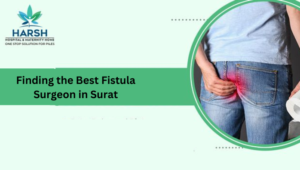Here’s the Complete Checklist for Women who must undergo a Laparoscopy
What you should do before surgery, after surgery.
- Before the procedure, You should stop taking all vitamins, natural supplements, and if possible, any analgesics that may contain aspirin (salicylic acid) because these products tend to thin the blood, increasing the risk of hemorrhage.
- Make sure someone accompanies you on the day of the surgery and helps you 24 hours after. This person must be someone with whom you are comfortable because he/she may have to help you go to the bathroom, get dressed, etc.
- Buy or prepare several meals ahead of time since after surgery you will not have the energy to cook. Do your house cleaning and laundry.
- Prepare comfortable clothing for your convalescence.
- Silky underclothing such as satin will be less irritating to the wound and allow you to slip out of bed more easily.
- Decide in which part of the house you will recuperate during the first few days. I choose my recliner in the living room.
- Prepare the location with clean sheets, pillows, heating pad, analgesics, reading material, remote control, telephone, etc.
- Buy some good magazines and rent a few movies to distract you during your convalescence.
If you have hemorrhoids (Piles), make sure to have a medicated cream on hand in case you’re constipated after the procedure.
Laparoscopy Tips: Pre-op appointment
- The pre-op appointment is the time to ask any questions you may have concerning the surgery, anesthesia, etc.
- Ask your doctor for your analgesic prescription and fill it out before the procedure. This is much more practical than doing it when you leave the hospital.
- Ask if you will need an enema. An enema is sometimes used to clean out the intestines to avoid intestinal waste from spreading in the abdomen should the intestinal wall be perforated during the procedure.
- Ask if you need to shave the area where the surgery will be performed. If so, you can wax the area yourself. This will substantially reduce itchiness during your convalescence.
- Ask your physician if he would agree to videotape your laparoscopy. This becomes an invaluable medical document and also reassures you about what went on during the surgery.
What to pack
Lastly, prepare your hospital bag and go over its contents with the person who will be accompanying you so that she knows what you packed and where you placed the items. Make sure to pack the following:
- sanitary napkins
- health insurance and hospital cards
- blank videocassette
- a pair of socks
- glass case
- Walkman and cassettes with relaxing music
- reading material
- Kleenex
- lip balm
- In the car place a large Ziploc bag in case you throw up, as well as Kleenex and a pillow.
On the day of the surgery
- Women who must undergo a Laparoscopy shouldn’t wear any makeup, hairspray, body lotion, or deodorant. Remove nail polish, jewelry and contact lenses.
- Wear loose clothing such as a dress without any elastic at the waist.
- Wear bikini underwear so that no fabric rubs against your navel after the procedure. Also, make sure your panties are a size larger than you usually wear; they will be more comfortable if your abdomen is swollen.
- Wear shoes that are easy to slip on and off since you will find it hard to bend after the procedure.
- When you arrive at the hospital, try to relax. Listening to soothing music on your Walkman will help.
After the surgery
- In the car, recline the seat and place a pillow against your stomach to absorb the shock of bumps in the road.
- Once at home, lie down and sleep as much as possible for the first 24 hours. Your abdominal muscles will be very tender the first few days.
- Hold a pillow against your stomach if you sneeze or cough to lessen the pain. Your abdomen will be tender for about a week and some bruising is normal.
- Your shoulders will also hurt the first few days. Recline in your armchair and place a heating pad on your shoulders. When you feel better, walk a little around the house.\
- To get out of bed, roll onto your side, slip your feet out of bed, sit up using your arms for support and then stand up.
- If you feel nauseous, try the following: rub a pad moistened with rubbing alcohol under your nose, lie down, breathe through the mouth, suck on a mint candy, eat dry crackers or drink ginger ale.
- Eat lightly, beginning with liquids and slowly moving up to solid food. Eat foods high in fiber such as pears, prunes, asparagus, carrots, and whole-wheat bread to prevent constipation. The anesthesia and analgesics can cause severe constipation after surgery.
- Make sure to drink at least 1.5 to 2 liters of water per day not only to prevent constipation but also to help eliminate traces of the anesthesia.
- After the laparoscopy, avoid wearing tampons and having sexual relations until the bleeding stops.
- You may shower 24 hours after the surgery but don’t take baths for a week, which would be difficult anyway since you would have trouble getting out of the bath.
- A few days after the procedure, you can apply vitamin E to the incision if the scar looks normal and there are no signs of infection. Vitamin E promotes healing.
- It usually takes about a week to recover from a laparoscopy, a common and minimally invasive procedure. If, however, you develop a fever, have difficulty urinating or experience heavy bleeding, contact your doctor immediately or go to the hospital.
- When you return to work, wear loose clothing and avoid wearing nylon pantyhose, which will irritate your navel.





